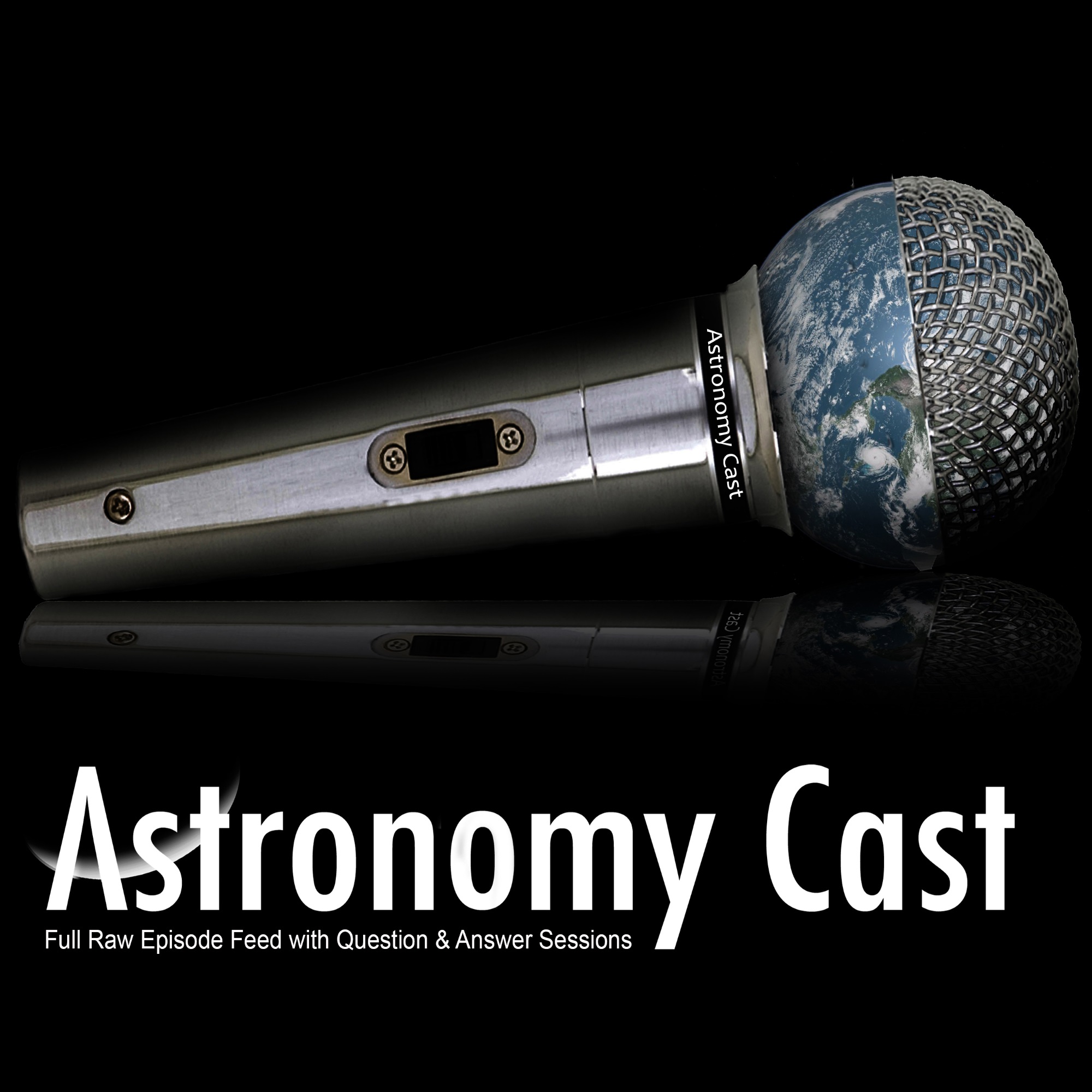
365 Days of Astronomy - Weekly Edition
The weekly podcast from the International Year of Astronomy 2009. This podcast comes out weekly and includes each daily episode of the 365 Days of Astronomy Podcast.
- Update frequency
- every 7 days
- Average duration
- 55 minutes
- Episodes
- 329
- Years Active
- 2017 - 2025

Ep. 540: Weird Issues: How Do (or Don't) Planets Form?
As astronomers started to discover planets orbiting other stars, they immediately realized that their expectations would need to be tossed out. Hot jupiters? Pulsars with planets? We're now decades i…

Ep. 539: Weird Issues: Why We Don't Know the Age of Saturn's Rings
How old are Saturn's rings? They could be brand new, or they could be as ancient as the Solar System itself. Planetary scientists thought they knew the answer thanks to new data from Cassini, but new…

Ep. 538: Asteroids: Rubble piles of the Solar System
Thanks to all the work from Hayabusa 2 and OSIRIS-REx, astronomers are getting a much better look at the smaller asteroids in the Solar System. It turns out, they're piles of rubble... but fascinati…

Ep. 537: Reusable Rocket Revolution
We took a hiatus this summer, but SpaceX sure didn't, with the tests of the Starhopper prototype. Today we're going to talk about the revolution in reusable rocketry and quest to build a fully reusab…

Libsyn Survey Request
Please help us keep bringing you content by going to http://survey.libsyn.com/astronomycast and filling out the survey, so Libsyn can find us sponsors for Astronomy Cast!

Astronomy Cast on Hiatus until Sept 2019
Astronomy Cast will be on hiatus for July and August. Don't worry, we'll be back in September, and we might just have surprises for you all along this summer! Don't forget you can still catch Pamela …

Ep. 536: Everyday Relativity
Relativity is used in more day to day situations than you may realize. In this episode, we will count (some of) the ways. This episode is brought to you live from the All-Stars Star Party in Indian …

Ep. 532: Modern Astronomy of Australia
Last week we talked about how well the indigenous Australians followed the night sky. Well, it turns out, Australia is still an amazing place for astronomy. There are so many powerful observatories i…

Ep. 531: Australian Indigenous Astronomy
This week, we focus on the archaeoastronomy of another part of the world, this time from the indigenous people of Australia. Another group of people whose lives depended on knowing what was happening…

Ep. 530: Astronomy of the Andes - Then and Now Pt. 2
South America, especially the Atacama Desert in Chile has become one of the best places in the world to put a telescope. It's dry, high, and the nights are clear. Today we'll talk about the monster t…

Ep. 529: Astronomy of the Andes - Then and Now Pt. 1
The Andes mountains in South America are a hotspot of astronomy today, but ancient peoples knew it was a great place for astronomy and lived their lives in tune with the night sky. Today we'll learn …

Ep. 528: Modern Astronomy of the American Southwest
Last week we talked about the ancient astronomy of the American Southwest. But this is actually Pamela's stomping grounds, and she's spent many a night perched atop mountains in this region staring …

Ep. 527: Ancient Astronomy of the American Southwest
Ancient peoples had no light pollution, and they knew the night skies very well. In fact, they depends on them to know when to plant and when to harvest. Today Pamela talks about the archeoastronomi…

Ep. 526: Event Horizon Telescope and the Black Hole at M87
Today, of course, we're going to talk about the announcement from the Event Horizon Telescope and the first photograph of a black hole's event horizon.

Ep. 525: 100 Years of the International Astronomical Union
Even though they might be scattered around our planet, astronomers have way to come together to work out issues that face their entire field of study. It's called the International Astronomical Union…

Ep. 524: Judging Age & Origins, part 3 - Beyond Our System
We learned how to figure out the ages of objects in the Solar System, now we push out into the deeper Universe. What about stars, galaxies, and even the Universe itself? How old is it?
This episode i…



